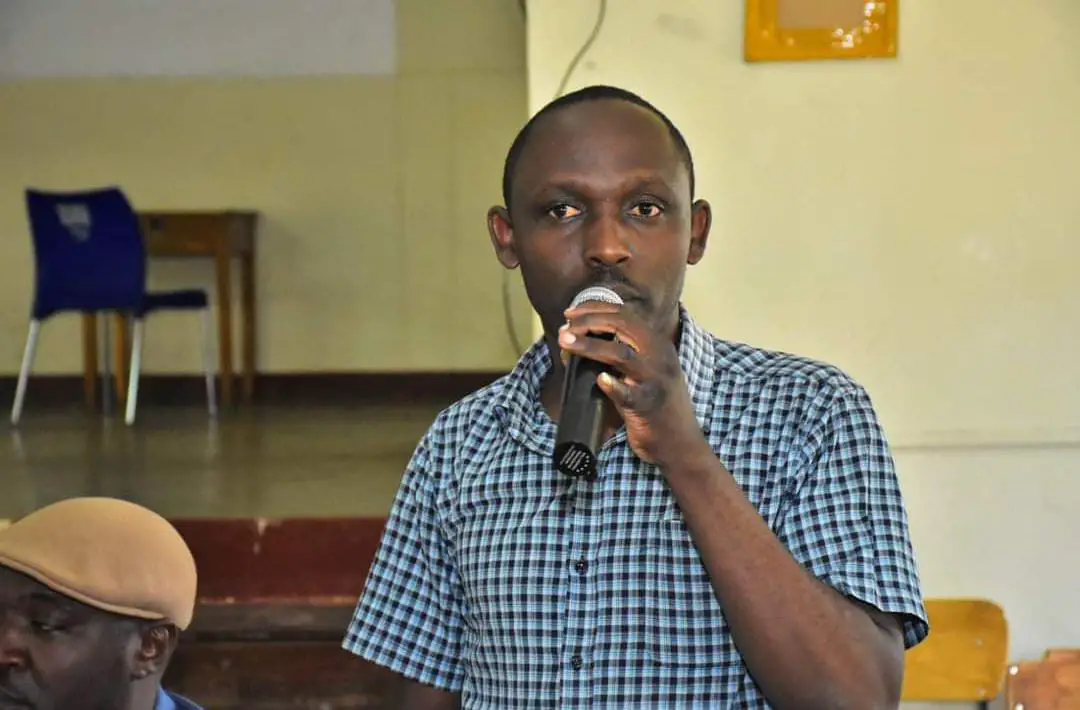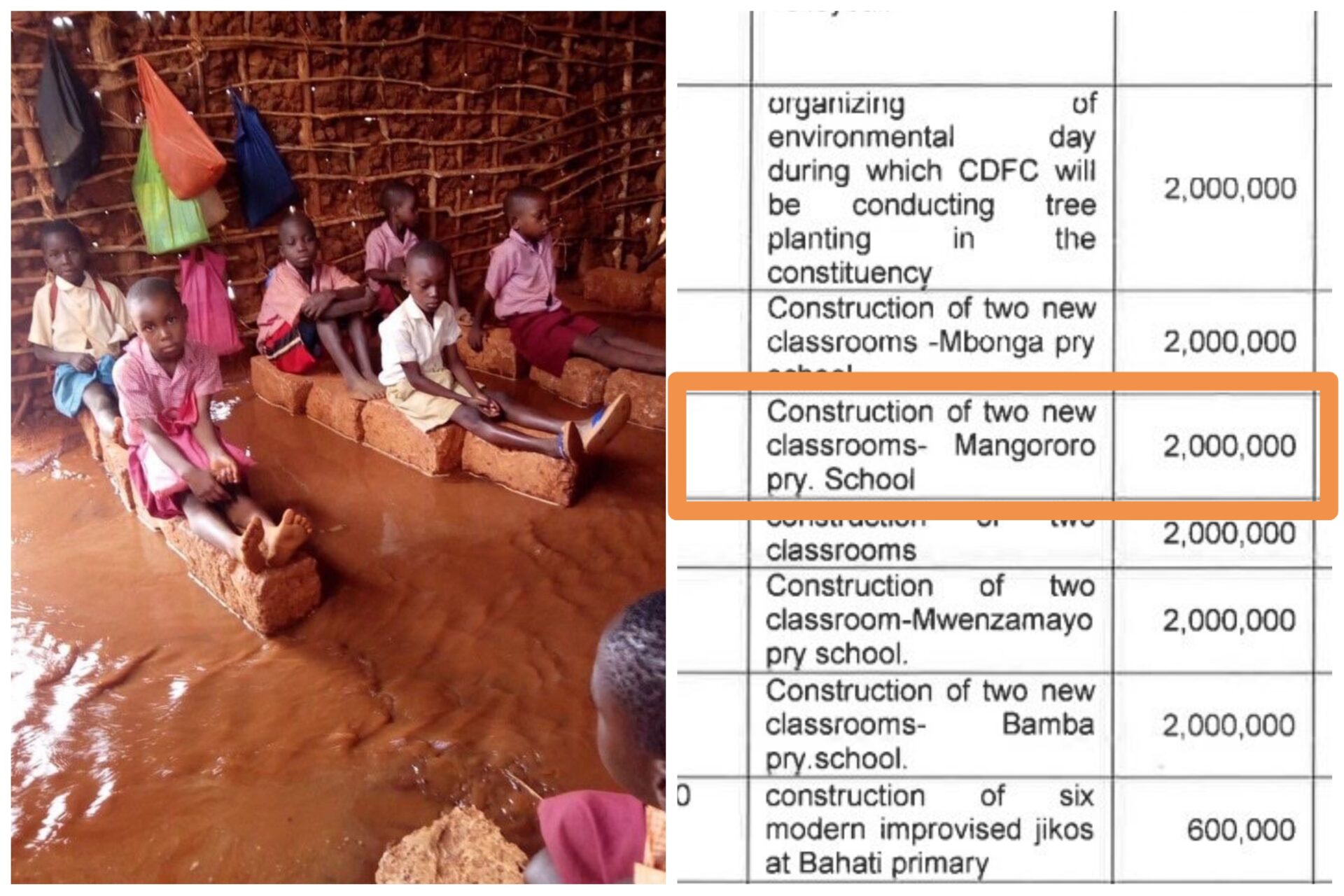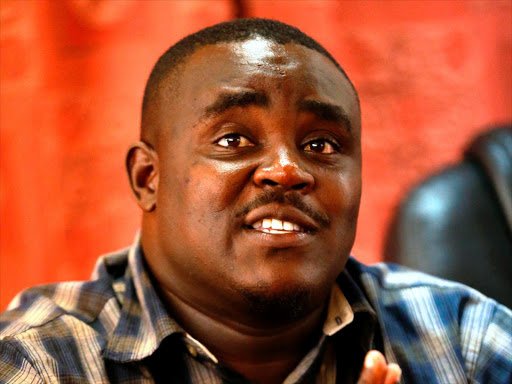Caption: A screenshot showing that in America, networks head hunt content creators, unlike Kenya where preference is given based on patronage, who you know, who you sleep with or who gives you a commission.
Reading through various blogs, I’m intrigued that top American media networks like HBO recruit specialists to generate content for their versatile viewers, who demand quality and intellectually-stimulating programming and are ready to pay top dollar to consume it. This in itself could be the secret to eliminating media mediocrity in Kenya and help create new opportunities based on merit and not patronage.
We have for long listened to retarded arguments by heads of leading media house executives like Linus Kaikai, Wachira Waruru and their equally demented counterparts from other media houses, on why they believe the notion that Kenyans can only consume Mexican Soap Operas and Nigerian Movies. News that a movie on the WestGate Mall attack was received with much criticism, yet people cannot correlate that with the mediocrity that is rife in Kenyan media.
The truth is, for an independent content creator to get their creations in one of the so-called “leading” (based on Kenya’s mediocre standards) aired/televised/printed, many bizarre factors come to play. For instance, Citizen or NTV’s first criteria of dismissing legitimate content is due to the “lack of sponsors” a familiar tune blurted out by Wachira Waruru at the ready. He almost has a “no” at his fingertips even before listening to an idea. None of our current media houses are able to underwrite the risk of acquiring solid content, without prior financial commitment of corporate sponsorship. All the media you consume is dictated by corporates, leaving you to wonder what media houses do with all the profits they declare. Can’t they first acquire solid content, cement their viewership then charge corporates an even higher premium?
Now to get corporate sponsorship is another challenge, in a Nairobi that extols mediocrity and degrades merit. Leading advertising agencies for instance Bharatt Thakrrar of ScanGroup have created one redundant environment where standards of advertisements are equally deplorable. Look at for-instance an advert for Unaitas reaching out to investment groups popularly known as “chamas” and the downright intellectual-inferiority in that advert alone is nauseating.
The media buyer of ScanGroup George Lutta is said to buy space in media houses of his preference or those that offer him an inducement package to suit his needs, similar to how we mentioned earlier that Bob Collymore only sponsors initiatives or events that warm his heart, and not necessarily the preference of his diverse pool of customers. Because of a pseudo-monopoly between players in the media, corporate and advertising sector, who all seem to meet and decide how to downgrade Kenya’s media standards, merit is no longer a consideration.
On the flipside, logging onto social media will reveal periodical flashes of brilliance from creative individuals who do not seem to be recognised, or are not interested in being part of a mediocre media system. And contrary to Linus Kaikai or Wachira Waruru’s myths that Kenyans are only of the calibre of consuming third-rate content, we do indeed appreciate professionally produced pieces, reason why subscriptions to pay-TV channels are increasing ten-fold and DVD shops are booming in all major urban centers.
Take for-instance the Westgate terror-attack. HBO contacted British film-maker Dan Reed who assembled thousands of hours of footage gleaned from more than 100 security cameras inside the mall, video from television crews and modest cellphones, as well as still photographs. Then he and his team tracked down more than 200 people and interviewed 82 of them on camera, many survivors or their rescuers. The result is a harrowing hourlong documentary, “Terror at the Mall,” that aired first on HBO, and to date no local channel has been brave enough to televise it on orders from StateHouse.
Compare the HBO WestGate documentary to those aired by local channels and you will understand why Daystar should never be regarded as an institution of higher learning, if the country’s top media operatives are the pride and joy that the university constantly uses to promote itself.
The question is this, who gave Wachira Waruru and Linus Kaikai the moral-authority to conclude that Kenyan’s intellect can only allow us to consume mediocre shows like Inspekta Mwala, or La Mujer De Mi Vida? Do the two media execs even watch the disgusting shows they bring on TV?
Brief history is that the advent of liberalisation in media saw KTN handed a license as the second broadcaster in Kenya. Kenyans tired of mediocre shows like Vitimbi and Vioja Mahakamani were yearning for a breath of fresh air. KTN started off on a high-note with extremely intellectual anchors like Kathleen Openda, Fayaaz Qureshi, Zain Verjee and even the repulsive Jubilee functionary Jeff Koinange. Young children were catered for in the KTN Kids Club and later Club Kiboko by Jimmy Gathu and Lornah Irungu. KTN by then was a hub of intellect with riveting talk shows like The Third Opinion and John Sibi Okumu’s famous talkshow where in 2002, he caught then Presidential candidate Uhuru Kenyatta offguard, as he did not seem to know the price of a packet of milk, yet his family owned a milk-processing plant.
Indeed, KTN is the one that has nurtured most if not all leading media faces today, but at some point got lost in the wave changing Kenya. Citizen’s SK Macharia read the mood in 2002 and expended his entire machinery to see NARC win the General Elections, and with that he gained moral authority and was awarded illegal frequencies as a way of thanking him for his troubles. In the ensuing melee as media houses tried to repackage themselves and Artur Brothers raiding KTN, former First Lady storming Nation Media, media houses seemed to get lost, and were competing on whose mediocre content would get more audiences.
Not that there is no content, not that there aren’t indigenous or independent content creators who can deliver value for viewers, it’s simply corporate-malaise. Nairobi has become so mediocre, that anyone with a brilliant idea would prefer it gathering dust in their house, than being put through a cat and mouse game whereby Linus Kaikai makes you wait in his office as he finishes playing golf at Muthaiga Club, only to later cancel an appointment with no apology. Pure nursery-school arrogance that is affecting the bottomline of these media houses.
Then there this demonic obsession with politics. Media houses would commit time and resources to cover political rallies and mediocre party launches live, yet not extend the same courtesy for other more productive sectors of the economy like art, sports and the likes. There are countless of events happening countrywide every week, which the media chooses to give a wide-berth. Many sporting activities, many festivals and the likes that won’t even demand money. They would simply appreciate the publicity.
Which would then explain how South African company Supersport found its way to Kenya, and acquired rights of the Kenyan Premier League even as local broadcasters were sleeping, a move that has helped push their decoder sales, meaning that their investment in form of rights fees has matured and provided healthy returns.
The question is this, how will new jobs be created if lazy media execs make it their preoccupation to acquire substandard productions from Nigeria or Latin America and shove it down the neck of Kenyan viewers? Are these nincompoops patriots or enemies of development? Are the resources from media houses only available to televise political rallies and prayer meetings, sometimes by conmen masquerading as pastors?
If the answer is yes, then we promise media houses that your viewer numbers will continue dropping, retrenchments will be fronted using tramped up reasons masking declining profitability and your viewership will fall as Internet penetration increases.
Once again, we advise media houses to head-hunt for talented content creators because they are in Kenya. If National Georgraphic has head-hunted a Kenyan Allan Root who shot to fame when his helicopter made an emergency landing in Karatina back in 2012 as he headed to drop his children to School, local media execs need to get off their lazy asses and save their media houses from the threat of extinction coming from the Internet. Bulldozing your way to fight digital-migration or bribing Government officials to fight Netflix, is childish to say the least.
Go hard or go home!


















































